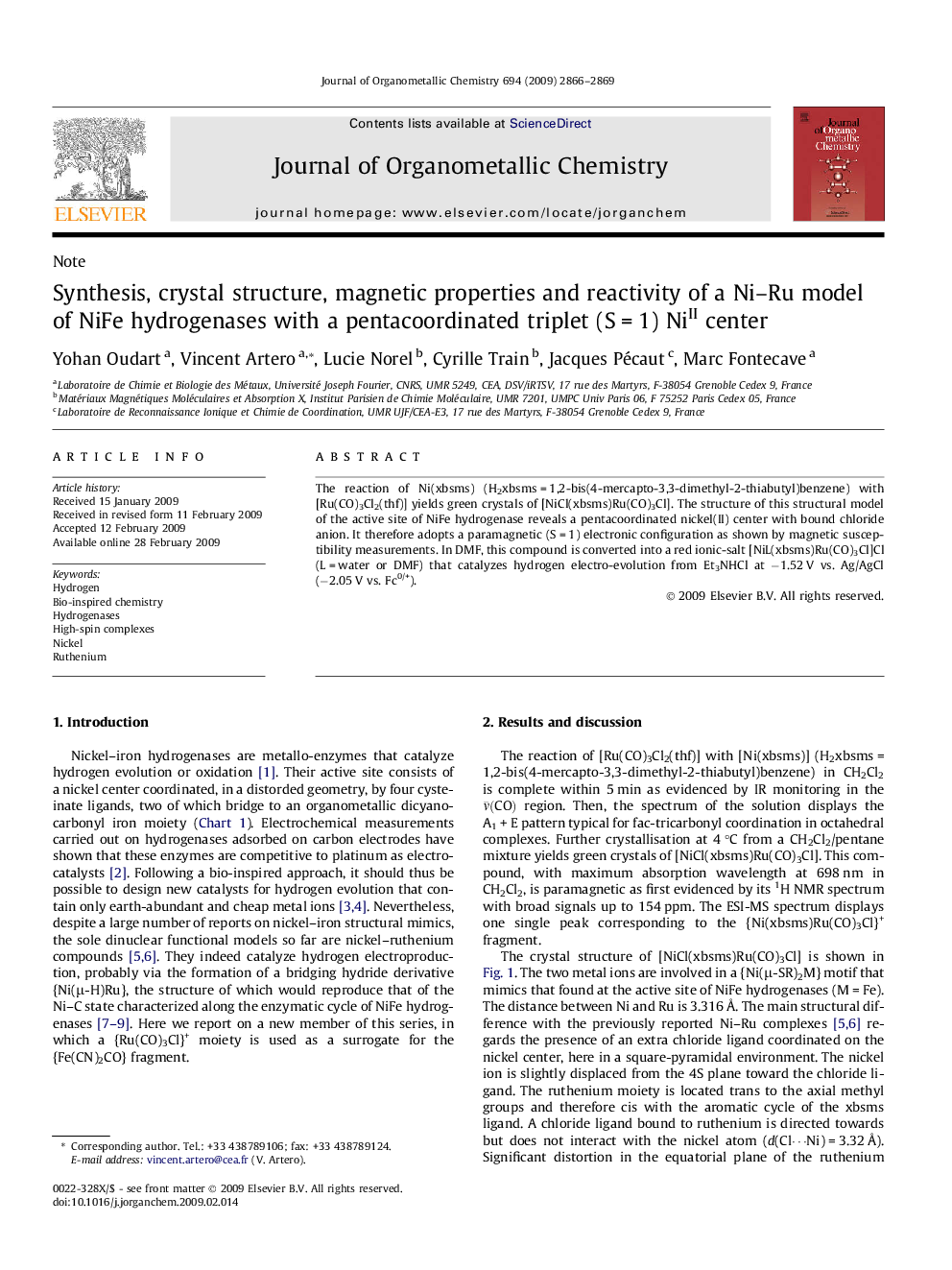| Article ID | Journal | Published Year | Pages | File Type |
|---|---|---|---|---|
| 1327341 | Journal of Organometallic Chemistry | 2009 | 4 Pages |
The reaction of Ni(xbsms) (H2xbsms = 1,2-bis(4-mercapto-3,3-dimethyl-2-thiabutyl)benzene) with [Ru(CO)3Cl2(thf)] yields green crystals of [NiCl(xbsms)Ru(CO)3Cl]. The structure of this structural model of the active site of NiFe hydrogenase reveals a pentacoordinated nickel(II) center with bound chloride anion. It therefore adopts a paramagnetic (S = 1) electronic configuration as shown by magnetic susceptibility measurements. In DMF, this compound is converted into a red ionic-salt [NiL(xbsms)Ru(CO)3Cl]Cl (L = water or DMF) that catalyzes hydrogen electro-evolution from Et3NHCl at −1.52 V vs. Ag/AgCl (−2.05 V vs. Fc0/+).
Graphical abstract[NiCl(xbsms)Ru(CO)3Cl] is a new functional model of the active site of NiFe hydrogenase. By contrast to other previously reported Ni–Ru complexes, the nickel(II) center coordinates a chloride ligand and adopts a paramagnetic (S = 1) electronic configuration.Figure optionsDownload full-size imageDownload as PowerPoint slide
